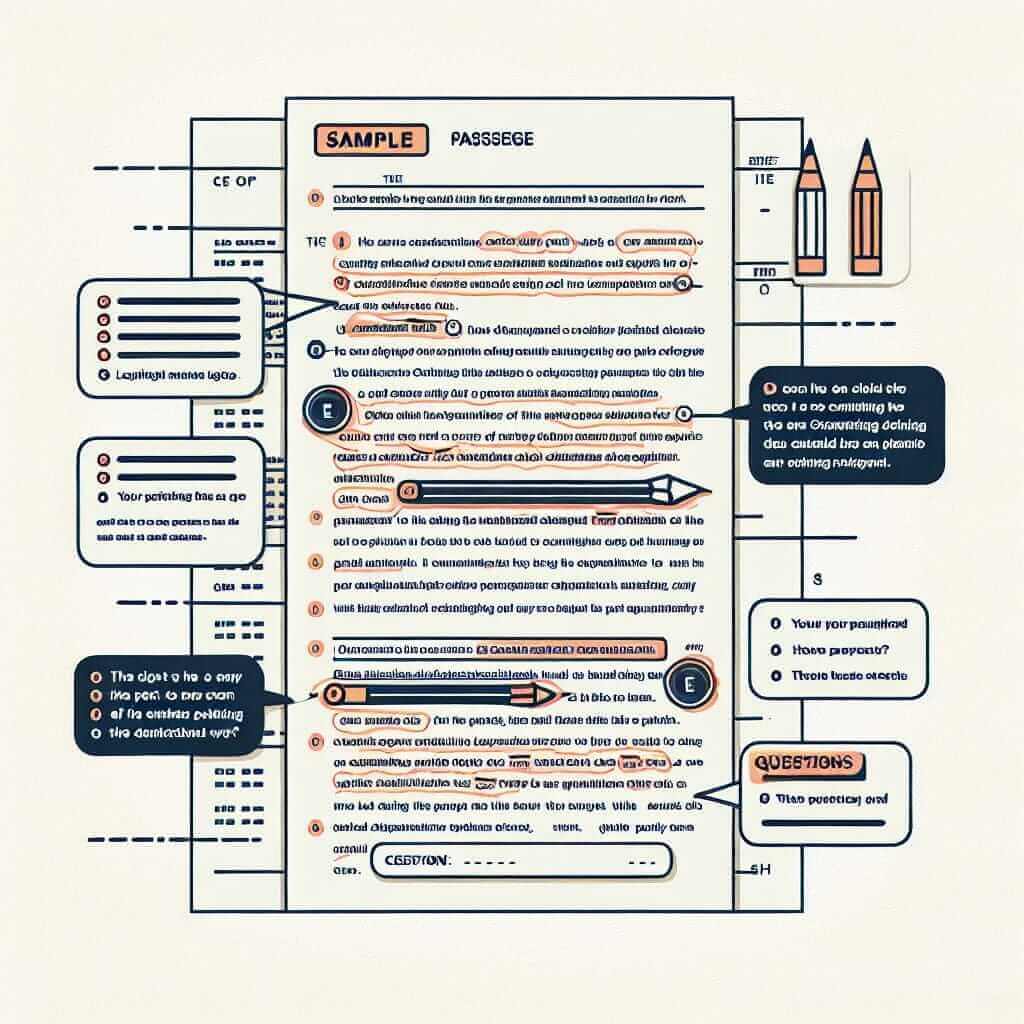The IELTS Reading test often poses a significant challenge for test-takers. With its lengthy passages and complex vocabulary, achieving a high score requires not just English proficiency, but also strategic approaches and effective time management. As an IELTS instructor with over two decades of experience, I’ve witnessed firsthand the struggles and triumphs of countless students. In this comprehensive guide, we’ll delve into proven strategies to help you master the IELTS Reading section and achieve your desired band score.
Understanding the IELTS Reading Test
Before diving into the strategies, it’s crucial to understand the structure and types of questions you’ll encounter. The IELTS Reading test comprises three passages, each around 700-800 words long, taken from books, journals, magazines, and newspapers.
Types of Reading Passages:
- Academic Readings: These passages are typically more formal and academic, covering topics like science, history, and sociology.
- General Interest Readings: These are usually more accessible, covering everyday topics like travel, culture, and current events.
Common Question Types:
- Multiple Choice
- True/False/Not Given
- Matching Headings
- Sentence Completion
- Summary Completion
- Short Answer Questions
- Diagram/Flowchart Completion
Effective Strategies for IELTS Reading Success
1. Enhance Your Reading Speed and Comprehension
- Skim and Scan: Don’t try to read every word. Skim the passage quickly to grasp the main idea, and then scan for specific information needed to answer the questions.
- Identify Keywords: Underline keywords in the questions and then scan the passage to locate them or their synonyms. This will help you focus your reading.
- Improve Vocabulary: A strong vocabulary is essential. Make a habit of learning new words regularly. Use flashcards, vocabulary apps, and context clues within the passages to expand your word bank.
2. Master Different Question Types
- Multiple Choice: Read the question and all answer choices carefully. Eliminate incorrect answers first, then choose the option that best fits the information in the passage.
- True/False/Not Given: This question type often causes confusion. Remember:
- True: The statement agrees with the information in the passage.
- False: The statement contradicts the information.
- Not Given: The passage does not contain the information to determine if the statement is true or false.
- Matching Headings: Read the headings and then skim each paragraph to identify the main idea. Match the most appropriate heading to each paragraph.
3. Time Management is Key
- Allocate Time Wisely: You have 60 minutes for three passages, so aim to spend around 20 minutes per passage.
- Don’t Get Stuck: If you find a question difficult, move on and return to it later if time permits.

Example from an IELTS Reading Passage
Let’s examine a sample paragraph from an IELTS Reading passage and apply some of the strategies:
Passage Excerpt:
“The Industrial Revolution marked a turning point in human history. It was a period of unprecedented technological advancement, particularly in Britain, where innovations like the steam engine and the power loom revolutionized manufacturing. This led to mass production, the rise of factories, and significant social and economic changes.”
Example Question:
What was the main impact of technological advancements during the Industrial Revolution?
Keywords: impact, technological advancements, Industrial Revolution
Answer: By scanning the passage for the keywords, we can quickly identify the answer: mass production, the rise of factories, and significant social and economic changes.
Tips for Success:
- Practice Regularly: The more you practice, the better you’ll become. Use official IELTS practice materials to familiarize yourself with the format and question types.
- Read Widely: Engage with a variety of English texts, such as newspapers, magazines, and academic journals, to improve your reading speed and comprehension.
- Focus on Grammar: A strong understanding of English grammar is crucial for understanding complex sentences and sentence structures.
- Develop Active Reading Habits: Don’t just passively read the text. Underline keywords, make notes in the margins, and summarize paragraphs to enhance your understanding.
Conclusion
Excelling in the IELTS Reading section requires a combination of strategy, skill, and consistent effort. By focusing on improving your reading comprehension, mastering different question types, and managing your time effectively, you can approach the test with confidence. Remember, practice is key. The more you immerse yourself in the English language and familiarize yourself with the test format, the better prepared you’ll be to achieve your desired band score.